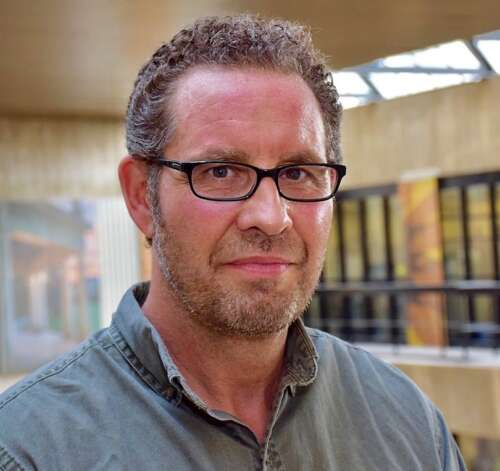The growing use of magic mushrooms to treat mental health disorders is changing attitudes toward the use of psychedelic drugs. A University of Guelph sociologist says that while awareness is stimulating discussion of the social benefits of taking a public health approach to substance use, it doesn’t necessarily mean legalization will happen any time soon.

Dr. Andrew Hathaway is a professor in the Department of Sociology and Anthropology in the College of Social and Applied Human Sciences who studies illicit drug use, harm reduction, human rights and Canadian drug policy.
Discussions around policy reform have taken place, he says, but nothing formal.
Psilocybin is a naturally occurring psychedelic, the active ingredient found in magic mushrooms. There are more than 200 different species of magic mushrooms and they have been used for thousands of years to treat anxiety, depression, obsessive-compulsive disorder and substance use, according to Health Canada.
Some results have shown promise; however, evidence is limited.
“It’s fair to say that word is spreading in some circles of the benefits, much like it did with cannabis at the end of the last century prior to its legalization for chronic medical conditions,” Hathaway says.
Still, he says, Canada has yet to indicate that it plans to legalize psilocybin and get into the business of licensing distribution. “It is a smaller market, so it is less profitable,” he points out, “in the same way that cannabis is a smaller market than the more popular drug alcohol.”
Magic mushrooms legal in half a dozen countries
In Canada, psilocybin is a schedule III drug regulated under the Controlled Drugs and Substances Act. It is illegal to sell and possess. It is legal in some countries and decriminalized in a handful of U.S. states, meaning it’s not legal but the possession and cultivation of the drug is not prosecuted nor are sales regulated.
Despite psilocybin being illegal in Canada, mushroom dispensaries have popped up across the country. Hathaway says it is because there is clearly a market for these products, pointing out public retail outlets serve as a form of activism to raise awareness about psilocybin and help overturn legal restrictions.
Cannabis advocates worked for decades to raise awareness before it was legalized in Canada in 2018. Hathaway says there is a similar effort for mushrooms, but not yet to the same degree. It makes good sense from a public health perspective, he says, and has gained momentum in North America and elsewhere.
Recently, mushroom dispensaries in Ontario were raided and shut down in Windsor, London and Brantford in addition to raids in larger Canadian cities. Raids covered by the media tend to happen in larger cities, Hathaway says, so the one in Brantford suggests that mushroom retailers are also popping up in smaller centres.
Hathaway recently spoke to CTV News about psilocybin. He is available for interviews.
Contact:
Dr. Andrew Hathaway
hathawaa@uoguelph.ca
